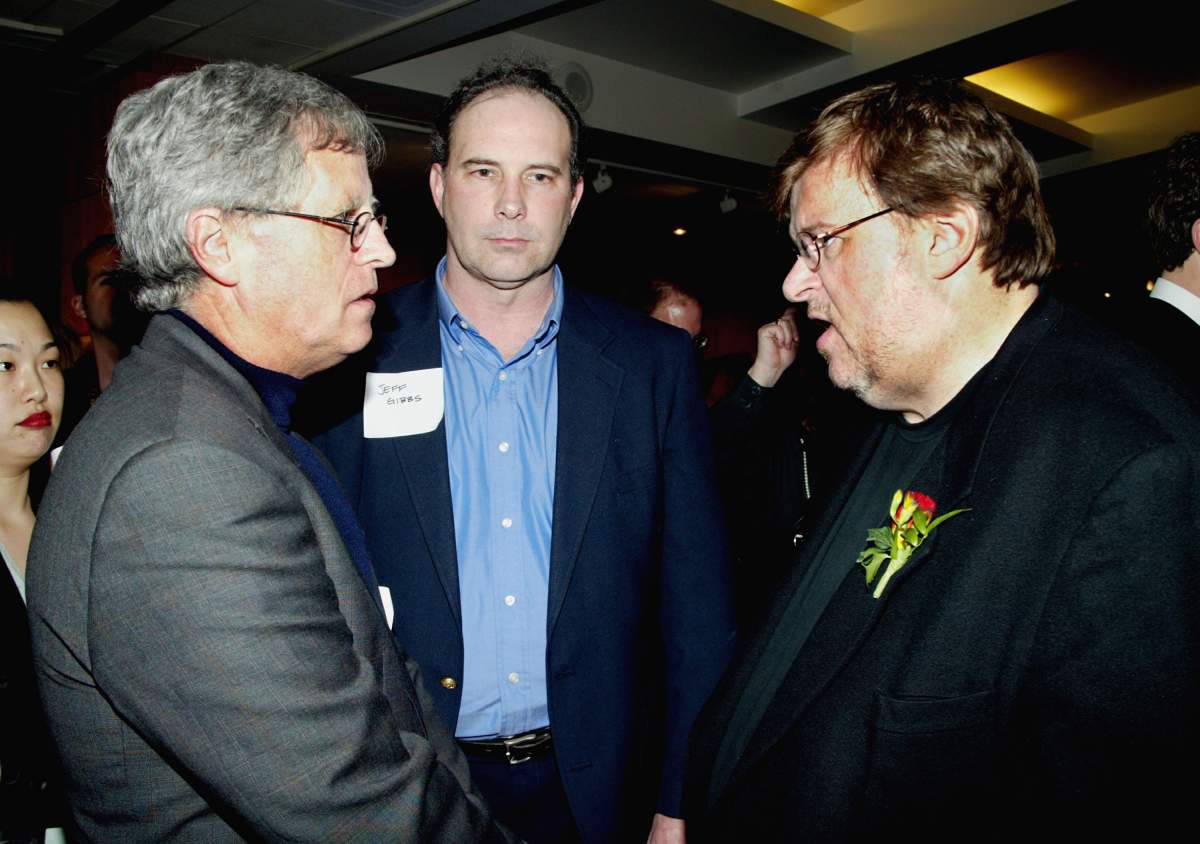Only a month after it was released for free, in its entirety, the Michael Moore-produced, Jeff Gibbs-directed climate change documentary, Planet of the Humans, has been taken down from YouTube — but not for the reason you might think.

Though the one-hour, 40-minute spanning film amassed a great deal of backlash last month — with climate change activists calling for it to be removed from the streaming platform after suggesting it was “shockingly misleading” and “riddled with falsehoods and misinformation” — it was blocked as a result of a copyright infringement claim from a British photographer.
That’s right, on May 23, Toby Smith, the London-based, environmental professional photographer, filed a dispute to YouTube, alleging that Gibbs and his team had violated fair usage by using four seconds of footage from the 2014 short film Rare Earthenware, according to the Guardian.
Gibbs (Bowling For Columbine, Fahrenheit 9/11) denied the copyright infringement claim and called Smith’s dispute a “blatant act of censorship” and an “attempt to subvert the right to free speech” in a statement obtained by NME.
Referring to the criticism he and Moore, 66, have received for the controversial movie, Gibbs said: “This attempt to take down our film and prevent the public from seeing it is a blatant act of censorship by political critics of Planet of the Humans.”
In its own, since-deleted YouTube synopsis, Planet of the Humans was described as a “full-frontal assault” on renewable energy sources, which left many climate change activists and scientists in dismay.
Upon its release, a letter calling for an “apology and immediate retraction” of the film was shared by American filmmaker and environmental activist Josh Fox (Gasland). He claimed that it is a “blatant affront to science, renewable energy, environmental activism and truth itself.”
Additionally, Fox called to Films For Action, an online movie archive, to remove the feature from their library.
Instead of renewable energy sources — which Gibbs suggests are just as expensive as fossil fuels — the film calls for environmentalists and viewers to throw their full attention towards issues like population control and economic regression in order to effectively combat climate change.

Get daily National news
To relay many of its arguments, Planet of the Humans also preys on decade-old mistakes made by prominent environmental activists like former U.S. vice president Al Gore and author Bill McKibben in an attempt to pin them as corrupt, money-hungry figureheads.
McKibben, on the other hand, denied this, and denied rumours that he has ever taken money from corporations. He said he has always been subject to “ceaseless harassment from the fossil fuel industry” and “others who think of themselves as activists,” according to a statement.
As well as McKibben, Michael Mann — both a climate change scientist and signatory to Fox’s letter — said that the movie was filled with “various distortions, half-truths and lies,” according to the Guardian.
In his most recent statement, addressing the copyright dispute, Gibbs defended himself by suggesting that Smith was simply another one of “the film’s opponents” criticizing him for the film’s message, which doubles as his own opinion.
He claimed: “There is absolutely no copyright violation in my film. This is just another attempt by the film’s opponents to subvert the right to free speech.”
“It is a misuse of copyright law to shut down a film that has opened a serious conversation about how parts of the environmental movement have gotten into bed with Wall Street and so-called ‘green capitalists’,” he concluded.
Ahead of its release, Gibbs described Planet of the Humans as a “must-see movie” and “the wake-up call to the reality we are afraid to face,” noting that it is “guaranteed to generate anger, debate and a willingness to see (the planet’s) survival in a new way — before it’s too late.”
Before its official removal from YouTube, Planet of the Humans had accumulated more than eight million views worldwide.
In the midst of discussions to get Planet of the Humans back up and running on YouTube, Gibbs has since listed the previously-private film public on YouTube competitor website Vimeo, giving users full access to watch it for free.
Despite his complaints against Smith, Gibbs had only initally planned to keep Planet of the Humans on YouTube for 30 days — to commemorate the 50th annual Earth Day — before making users pay to watch it.
As of this writing, Moore has not addressed the most recent controversy surrounding Planet of the Humans. Smith has not made public comment either.
A YouTube spokesperson gave ET Canada the following statement: “When we receive a valid legal notification regarding content that allegedly violates copyright, we are required by law to remove it. YouTube is not in a position to mediate copyright disputes — it is between the parties involved. If an uploader feels that their content is covered by a fair-use exception, they can file a counter-notification.”
For more information on Smith and his extensive photography work, you can visit his official website.









Comments